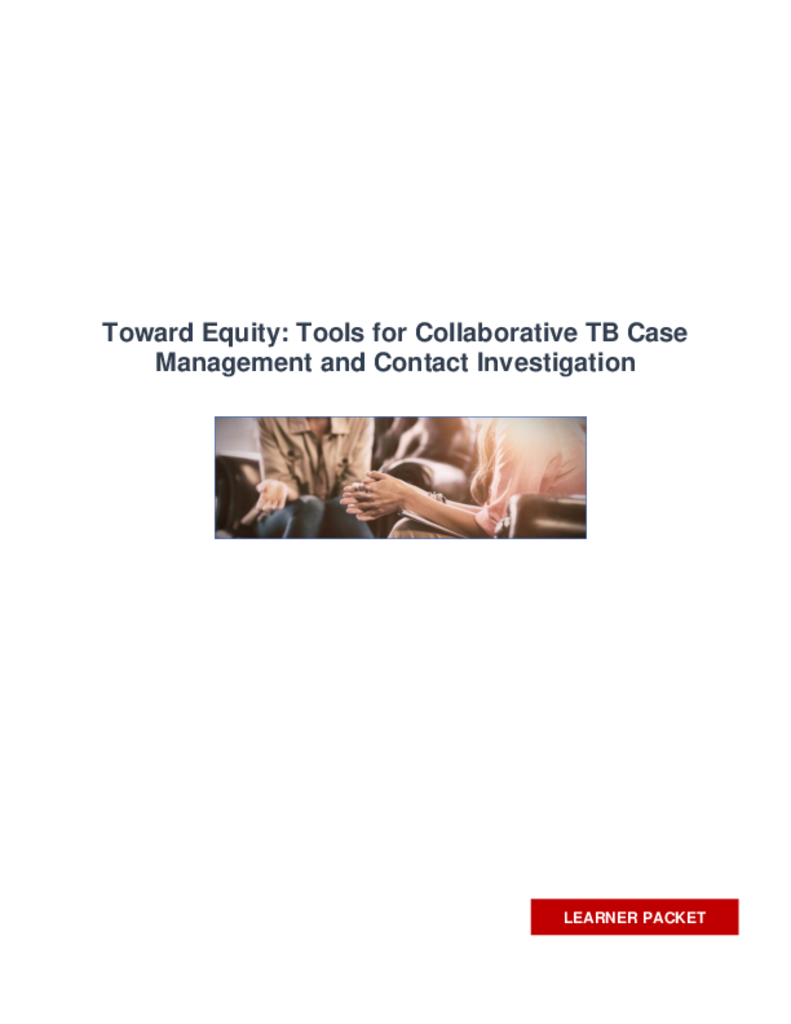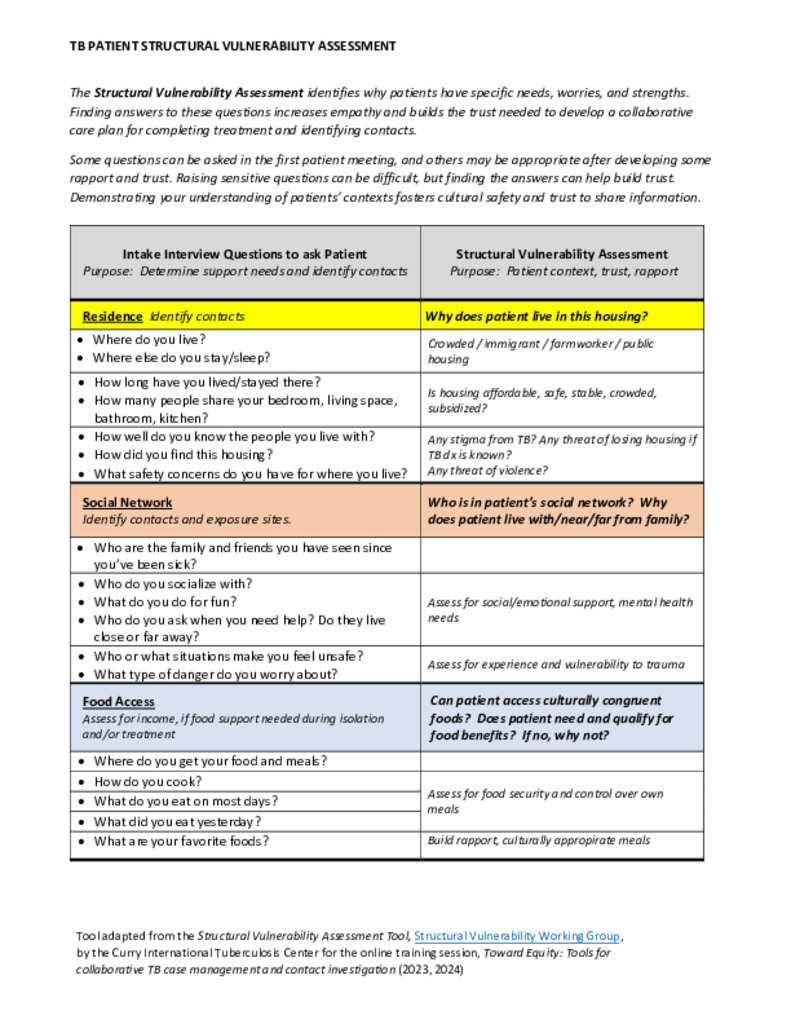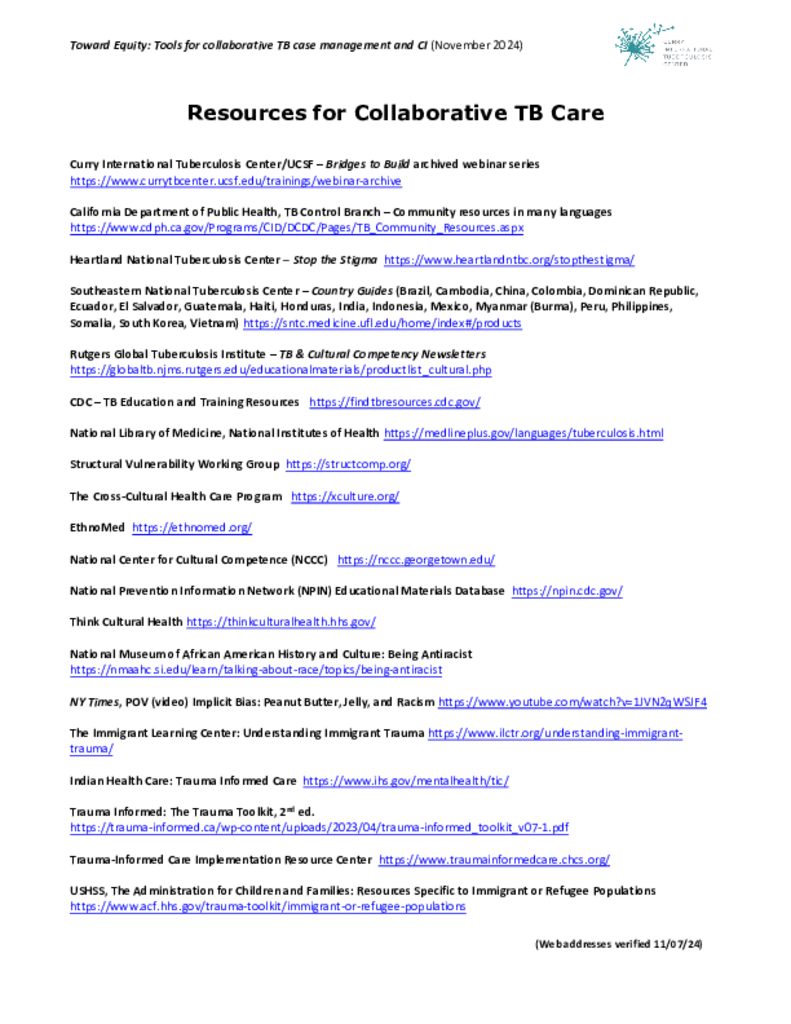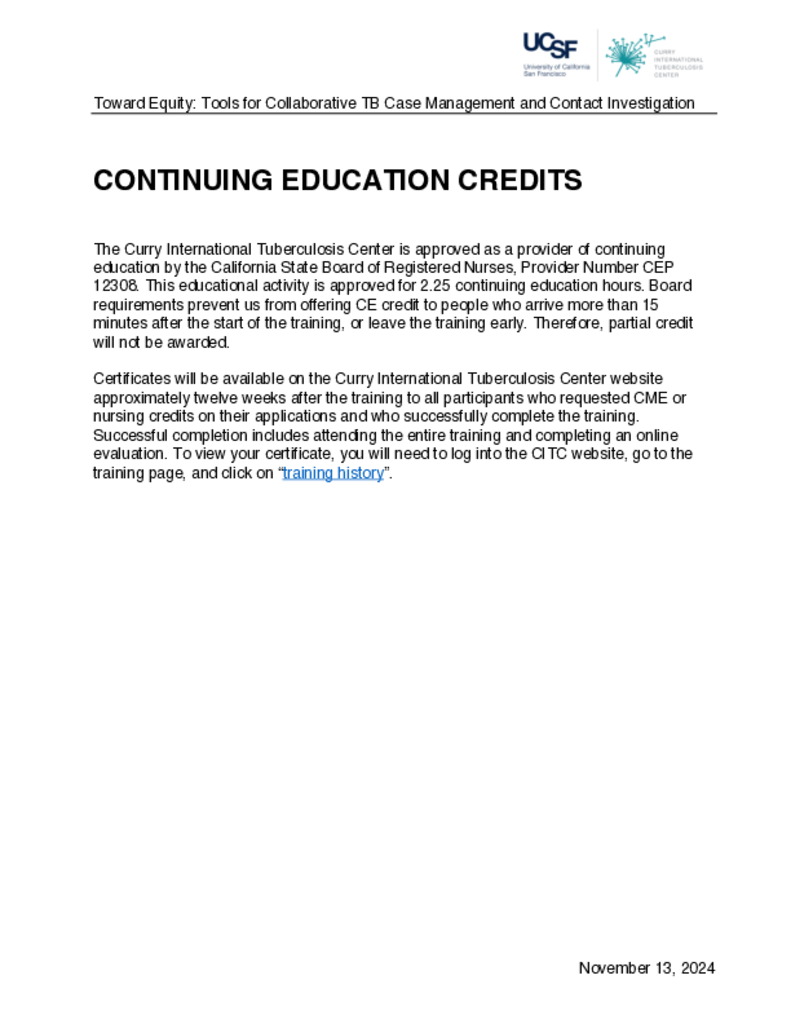Registration for this training ended on Wed, 10/02/2024 - 19:00
Please Note: Curry International Tuberculosis Center is only able to accommodate learners from the western region of the United States in this virtual training offering. The western region consists of seventeen jurisdictions: Alaska, Arizona, California (including Los Angeles, San Diego, and San Francisco), Colorado, Hawaii, Idaho, Montana, Nevada, New Mexico, Oregon, Utah, Washington, Wyoming, and the U.S. Pacific Island Territories. Thank you for your understanding.
Training Date: November 13, 2024 [virtual training offered via Zoom]
Training Time: 12:30 - 2:45 pm Pacific Time. (All of our virtual trainings are in Pacific Time. If you are unsure about the time zone differences, please use the Time Converter)
Cost: There is no fee for this training.
Credit: This training is approved for up to 2.25 nursing continuing education hours (see below). Certificates will be available approximately 12 weeks after the training.
Target Audience: This training is intended for nurses and case managers and staff who conduct contact investigations.
This training is part of the Curry Center’s Tuberculosis Case Management and Contact Investigation Intensive (CMCI) core training. The 2024 virtual CMCI series is designed for tuberculosis case managers and public health nurses who deliver case management services to patients with active or latent TB within the public health setting.
Virtual Training Format: Interactive lecture, small breakout groups and Q&A/open discussion
Training Objectives:
By the end of the training, participants will be able to:
- describe 2 potential benefits of using a collaborative approach to care
- define structural vulnerabilities and how they impact people’s health
- describe cultural humility and cultural safety
- list 2 examples of stigmatizing language in TB care and alternate non-stigmatizing terms
- explain why racism is a structural vulnerability that impacts health outcomes
- define implicit bias
- explain the importance of trauma-informed care
- list 3 questions to learn about the structural vulnerabilities within a patient's life
- name 2 ways the Western biomedical model contrasts with the ethnomedical model
- name 2 questions to ask a patient to learn more about their understanding of TB
- describe how to create a collaborative care plan
- name 2 examples of structural vulnerabilities within public health programs that hinder collaborative care with patients
TB Nurse Case Management Core Competencies:
This module supports the TB case manager's development of the following core competencies:
DOMAIN 4: Cultural humility - Essential knowledge & clinical skills:
- Acquire knowledge about the practices and beliefs of the individual and the individual's culture
- Be open to each individual’s uniqueness
- Assess language preferences and literacy levels
- Provide education in a variety of formats in the preferred language and dialect
- Use a language service or in-person interpreters in the language preferred by the patient and the patient’s family
- Understand what the experience of illness means to each patient and its impact on the patient-provider relationship
- Understand that many cultures have health practices different from Western medicine
- Obtain knowledge about cultural traditions, beliefs, and religious holidays to develop a DOT schedule that is acceptable to the patient or family
- Acknowledge the individual’s immigration history and its effect on the patient/provider relationship, including possible barriers to treatment
Presenters:
Stephanie Spencer, MA
Program Liaison,
Tuberculosis Control Branch,
California Department of Public Health,
Richmond, CA
Kay Wallis, MPH
Special Projects Manager,
Curry International Tuberculosis Center,
University of California, San Francisco,
San Francisco, CA
The Curry International Tuberculosis Center is approved as a provider of continuing education by the California State Board of Registered Nurses, Provider Number CEP 12308. This training is approved for up to 2.25 continuing education hour. Board requirements prevent us from offering CE credit to people who arrive more than 15 minutes after the start of the training, or leave the training early. Therefore, partial credit will not be awarded.
The Curry International Tuberculosis Center is designated as a Tuberculosis Center of Excellence for Training, Education, and Medical Consultation (TB COE) via a funded cooperative agreement with the Centers for Disease Control and Prevention. The Curry International Tuberculosis Center prioritizes learners from the western region of the United States which consists of seventeen jurisdictions: Alaska, Arizona, California (including Los Angeles, San Diego, and San Francisco), Colorado, Hawaii, Idaho, Montana, Nevada, New Mexico, Oregon, Utah, Washington, Wyoming, and the U.S. Pacific Island Territories.
Important: For your application to be considered, we require completion of the enrollment questions. To begin, please click Apply. Complete the enrollment questions that appear on the next page. To finish, click Submit.
United States








